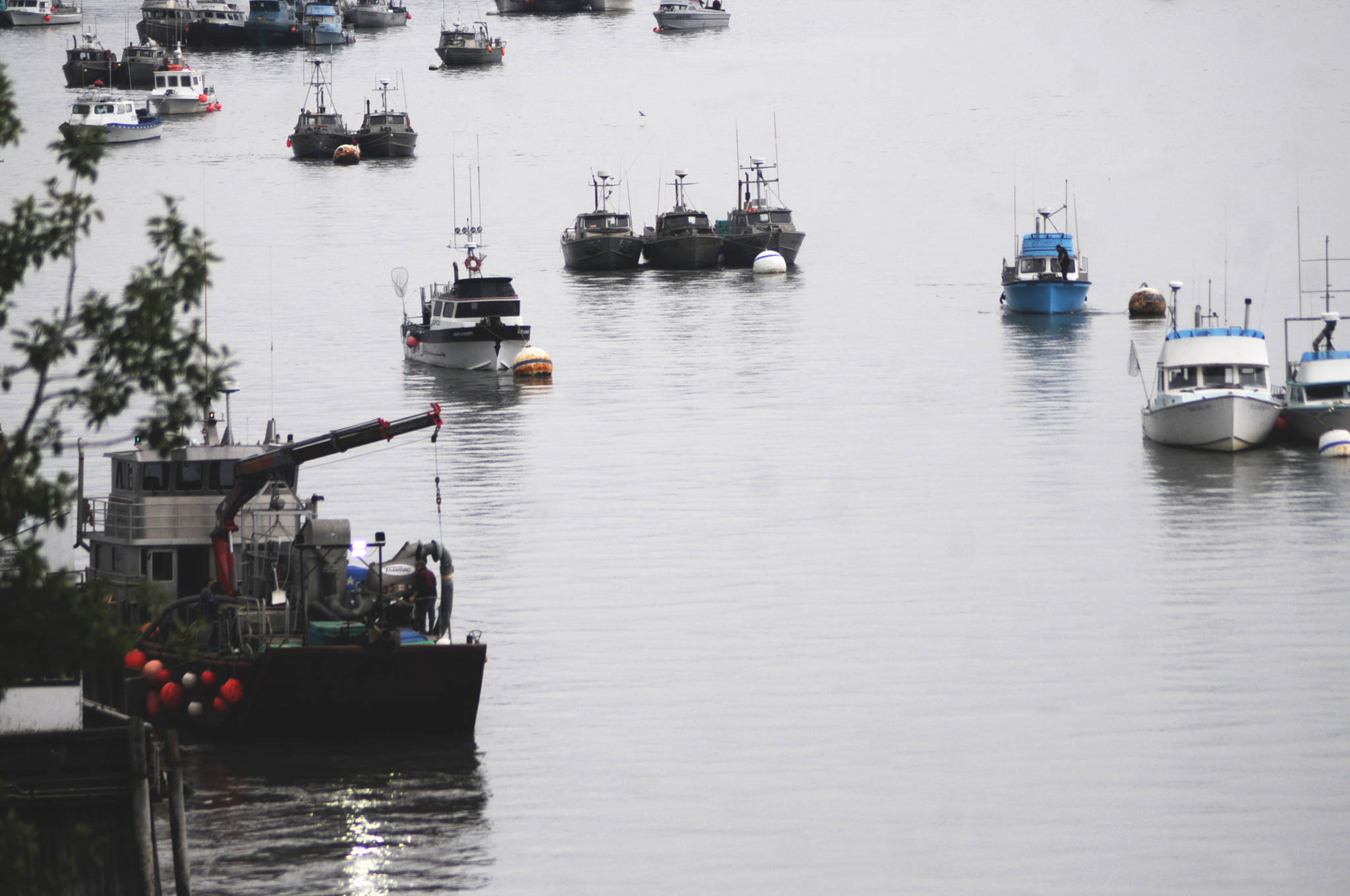The North Pacific Fishery Management Council is looking for input from Cook Inlet fishermen on how it should develop a management plan for the area’s salmon fisheries.
The federal council, which regulates fisheries in the federal waters between 3 and 200 nautical miles offshore, is currently working on an amendment to the fishery management plan for Cook Inlet’s salmon fisheries. The process is likely to take multiple years of meetings and the council members decided to form a Salmon Committee that includes stakeholders in the fishery to keep the public in the loop on it.
Specifically, the council members are looking for ideas from the public on how the committee will work, according an announcement sent out Tuesday. That can include any fishermen on the salmon stocks of Cook Inlet.
“To develop a scope of work for the Salmon Committee, the council is soliciting written proposals from the public to help the council identify specific, required, conservation and management measures for the Salmon Committee to evaluate relevant to the development of options for a fishery management plan amendment,” the announcement states.
The council only reluctantly took up the Cook Inlet salmon fishery management plan issue at all. The revision is the result of a multi-year lawsuit between the United Cook Inlet Drift Association and the National Marine Fisheries Service. A decision handed down from a panel of three federal judges in September 2016 found that the council was out of order when it removed Cook Inlet from federal oversights through Amendment 12, passed in 2012, which delegated all management authority to the Alaska Department of Fish and Game.
The fishermen argued that the state isn’t complying with the sustainability standards of the Magnuson-Stevens Act and that the council needs to provide oversight for state management. After the decision when the council first discussed revising the fishery management plan in April, the first steps to do so were unclear and the council put it off to gain more public input and staff analysis, last discussing it in October.
At the October 7 meeting, the council approved a motion establishing a preliminary purpose and need, pulling out Cook Inlet and eliminating two other fisheries in Prince William Sound near the Alaska Peninsula that were originally pulled into the debate through the amendment.
It also identified the stakeholder committee and said once public input is complete, council and National Marine Fishery Service staff will provide an update on the issues and develop a timeline for the committee.
Stakeholder participation was a key point for the plaintiffs in UCIDA’s lawsuit, and so far, they aren’t impressed with the council’s action to amend the management plan, according to a letter submitted as a followup to a status report from the National Marine Fisheries Service from UCIDA’s lawyer, Jason Morgan of Stoel Rives law firm in Seattle.
One of the key contentions the plaintiffs have is that they say the council is trying to “wriggle out” of setting a fishery management plan across the fishery, including on state waters, as the court instructed, Morgan wrote.
“Plaintiffs are very concerned that if NMFS and the Council continue to focus only on the selected parts of the fishery occurring in the EEZ rather than the entire fishery (as instructed by the Ninth Circuit and as required by statute) the entire remand process is likely to be a wasted exercise,” he wrote.
Stakeholders didn’t get to weigh in on the initial discussion paper, developed by North Pacific Fishery Management Council staff for the council’s April meeting, Morgan wrote, and the plaintiffs are concerned that the council may not provide any funding for the salmon committee. The delay until at least April 2018 of any further discussion on the salmon committee is also concerning, he wrote.
“All of this points to a process that may be heading in the wrong direction,” he wrote. “…The longer that the Council and NMFS attempt to ‘wriggle out’ of their statutory obligations, the greater the continued economic harm up on the fishing industry, fishing communities, and the Nation.”
The plaintiffs reserve the right to seek further court intervention until a fishery management plan in compliance with the Magnuson-Stevens Fishery Conservation and Management Act is finished, he wrote.
The deadline to submit proposals for the scope of work for the Salmon Committee is February first. Written proposals can be emailed to Jim Armstrong at james.armstrong@noaa.gov.
Reach Elizabeth Earl at elizabeth.earl@peninsulaclarion.com.

